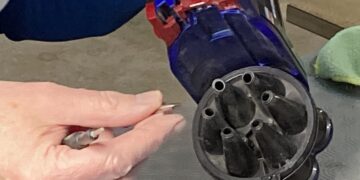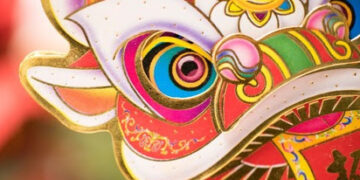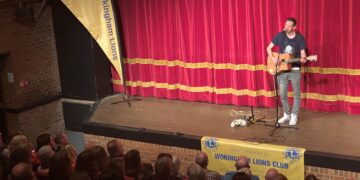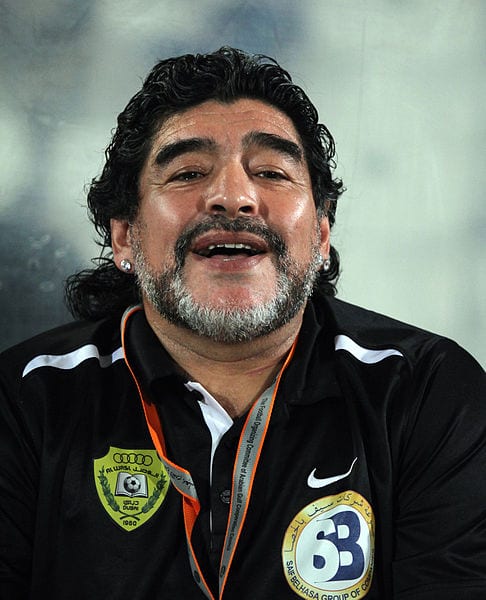LAST WEEK saw a day when the new tiered system was being launched, and the Chancellor was revealing his plans on how to pay for Covid-19. It would take an event of global significance to keep either of those off the front pages of our national newspapers.
The event of global significance was the death of Diego Maradona, an individual I have always been fascinated by.
In England, much of the coverage focused on the 1986 Argentina v England World Cup match, where his first goal was a handball and his second was considered to be one of the greatest of all time.
The British had originally introduced football to Argentina, as a pastime to engender discipline, fitness and physical strength among the young. The ex-pats would play on the lush green fields of the schools they set up, and their teams went on to dominate the early championships.
It is easy to discern the English influence, when reading match reports of the era.For example, the Buenos Aires Herald, reporting on the first match of a South American Championship between Argentina and Chile, did mention the score but was also very keen to credit Mrs G D Ferguson on providing the teas.
As football became established on the country, with locals playing wherever a patch of ground, however uneven, became available, a more individualistic ‘Criollo’ style was established, where keeping the ball in tiny spaces, tricks, guile and cunning became more and more prized. There was to be no greater purveyor of this than Diego Maradona.
He was born into abject poverty in a shanty town, with open sewers and unpaved roads.
He played on tiny patches of ground and, such was his talent, that he was signed on as a professional at the age of 15 and was from that moment on his family’s breadwinner and their escape from poverty.
Watching a film about his life, it was striking that from being a teenager he was always surrounded by people, almost invariably admirers, but people, all the time, people wanting to be in his presence, people wanting to touch him.
People projected almost mystical God-like powers on him – at one stage a vial of his blood was placed on the altar of The Cathedral of the Assumption of Mary in Naples, which is known to have disturbed him greatly.
It seemed like a horribly claustrophobic life.
He was ill-equipped to deal with the constant adulation and pressure. In that era, there were no nutritionists or psychologists to support him.
He had his people around him unable to say no to anything he wanted.
This became especially problematic when he went to Naples and met people who were able to provide any nocturnal activity that took his fancy, leading to his problems around addiction, which ultimately led to his health problems in later life.
He was a brilliant and brave footballer, at a time when there was little protection on the pitch. He was also clearly an unreliable, selfish, dishonest and flawed human being off the pitch who lived a life of extremes.
However, as one pundit said ‘I don’t care what he did with his own life, it’s what he did for everyone else’s’.
At least he had the opportunity of bidding farewell to the Argentinian public in a valedictory period in 2019 until lockdown, as Manager of Gimnasia, a struggling team in the Argentinian Superleague.
At Newell’s Old Boys (named after one Isaac Newell from Kent) he was given a throne to sit on by the club. He was given a rousing reception wherever he went as he shuffled on to the pitch, a body ravaged by decades of excess off the pitch and brutality on it.












































